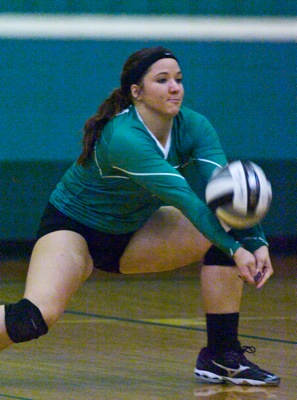Friday, October 4th, 2013
Brother to receive national award
By Amy Kronenberger
CELINA - A lifelong dedication to local agriculture and soil conservation has earned Brother Nick Renner, C.PP.S., national attention.
Renner is the 2013 recipient of the Archbishop Edwin O'Hara Advocacy Award for rural ministry. He will be presented the award during a ceremony at 2 p.m. Oct. 13 at the St. Charles Living Center, Carthagena. The national award is given annually by the Catholic Rural Life Conference. The ceremony is open to the public.
"I don't know who nominated me," he said. "I was totally surprised, a complete surprise."
The award is given to a leader in the Catholic Church who is an advocate for rural communities and teaches social justice as it pertains to that community in the spirit of O'Hara, who founded the Rural Life Conference in 1923.
Renner, who grew up on a farm in Landeck, near Delphos, became a professed brother with the Missionaries of the Precious Blood in 1964 and farmed the land at St. Charles for 43 years. He said his desire to focus on soil and environmental conservation in agriculture grew over time.
"I think it definitely grows over time as we age in maturity," he said. "Those words (environment and conservation) were never talked about. The words talked about were corn yields, crop production; we didn't talk about soil erosion and how the earth works."
The St. Charles farmland had up to a 6 percent slope in some areas, with highly erodible soil, Renner said.
"We used to plow those all the time until we were just losing way too much top soil," he said. "It's not right ... We need to think about how it will affect people 100 years from now because that soil has to be there. You don't make new soil that quickly."
By taking baby steps through trial and error, Renner and his fellow farmer at St. Charles eventually implemented year-round cover crops and no-till practices.
"The purpose is to (prevent) soil erosion," he said. "I always think you grow your cash crop four months of the year. The other eight months, on high-priced land, we should be growing our fertilizer by holding in the nutrients and harvesting the sun ... We noticed we could cut way back on our commercial fertilizer that way."
Tilling a field turns up and destroys the nutrients found naturally in soil, Renner explained. By not tilling, the nutrients and needed worms and microbes are locked in and help produce healthier crops.
"Earth did better without us humans in a way; it grew trees and grass and weeds (without tilling)," he said. Now we're breaking open the skin of the earth to till, and we just have to mimic Mother Earth a little bit more. We're not there ... but we have to keep moving that way, trying to respect the earth ... How can you work with Mother Earth unless you know how it works."
When Renner's farming partner died about six years ago, St. Charles chose to lease the farmland to neighbors, but Renner remains manager. He handles the contracts, which require no-till and cover crops.
Renner now serves as a supervisor with the Mercer County Soil and Water Conservation District and also serves as an advisor with the Ohio State Extension office in Mercer County. Through the two offices Renner concentrates on the distressed Grand Lake Watershed and phosphorous and nitrate levels.
"I'm taking on most of the opportunities and practices that they offer," he said. "Some of it is experimental ... You don't know; you just gradually get to know what's right, what's wrong, what works better than other things."
Renner also helped create Ag Solutions, a farm-based group in the Marion Local cluster that discusses conservation and the environment and how best to handle issues like what to do with manure, he said.
"We've done a lot of stuff out there on the farms, trying to do our part" he said. "I think the issues are bigger than us, but we're a big part of it ... Like all things, it's tough. There's no magic bullet out there."
Renner's faith as a brother is strongly tied to his work in agriculture and soil conservation, he said.
"I think we have to be good stewards of the land, and that would be Catholic social teaching," he said. "Water quality would be a social justice issue, which would tie into our faith: love your neighbor ... Trying to put my faith into action, it's very important to me."
The local social action director of the Rural Life Conference announced Renner would be the recipient of the award during its annual Rural Life Mass in June. About 500 farmers and their families from the St. Marys and Sidney deaneries attended the Mass.
"She told the whole group," he said. "I was sitting in the back ... and I stuck my head down; I was embarrassed."
Renner said he is accepting the award as an opportunity to promote agriculture and conservation.
"I know the focus is on (me), but it's really about ... how our guys have worked awful hard over this Grand Lake thing," he said. " I want to commend those and that's the purpose of me doing this."



